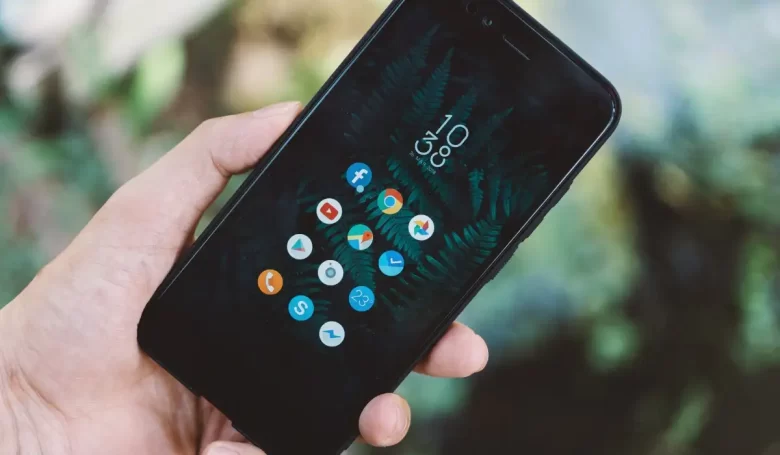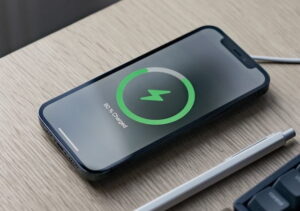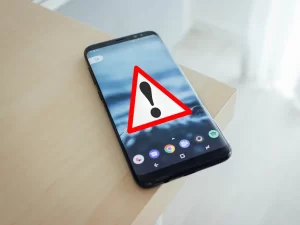Mobile phones are great for talking to people, working, and having fun. But for a variety of reasons, even the best smartphones can slow down, crash, or lose performance over time. Software bugs, old applications, insufficient storage space, and even hardware limitations can cause performance issues. Figuring out why your phone is running slow is the first thing you can do to make it run better. Heavy usage, installing a lot of apps, and running background processes can all slow down your device and make it less responsive. If you catch these issues early, you can take steps to keep your phone running smoothly and efficiently.
1. Clear Unnecessary Cache and Files
Clearing your cache and deleting unnecessary files is one of the easiest ways to make your phone run faster. While cached data helps apps load faster, it can build up over time, taking up space on your device and slowing it down. Clear your app caches regularly to make room for new files and make them run better. Removing duplicate photos, unused downloads, and old documents are other ways to free up space and speed up your computer. You can automate this process using your phone’s built-in cleaning tool or a third-party storage management app to keep your phone clean and responsive.
2. Updating Your Operating System and Apps
It’s important to keep your phone’s operating system and apps up to date so they can perform optimally. Most software updates fix bugs, improve performance, and add security patches to make your device run better. When apps are too old, they may no longer work with your phone’s operating system, causing your phone to crash and run slowly. Check your phone’s settings and app store for updates to make sure you’re always running the latest version. Another great way to keep your system and apps running smoothly without having to check them every time is to set them to update automatically. Keeping your phone up to date allows it to use the latest features, making it faster and more reliable overall.
3. Managing Background Apps and Processes
Background apps and processes can take up a large portion of your phone’s resources, slowing it down and draining your battery faster. Many apps run in the background, sending messages, updating content, and performing other actions even when you’re not using them. Handling these background tasks is crucial to improving performance. Close any apps you’re not using and check your phone’s settings to see if you can disable or limit background activity for apps you don’t need. By keeping an eye on which apps are using the most resources, you can find the apps that are slowing down your phone for no reason and fix them.
4. Reduce Animations and Visual Effects
Many modern smartphones come with animations and visual effects that give users a better experience, but can also slow down your device’s processor. These effects can slow down or stop your phone, making it feel faster and more responsive. Many devices let you change or disable animations, such as the effects that play when you open an app or switch between screens. By reducing these visual elements, your phone can run more efficiently because it doesn’t have to use as many resources to display unnecessary images. This small change can make a big difference, especially on older or less powerful devices.
5. Free up RAM to Run Faster
Random Access Memory (RAM) is very important to your phone’s speed because it temporarily stores data for active processes and applications. If your phone doesn’t have enough RAM, speeds can slow down significantly, causing apps to crash or freeze. To free up RAM, close unused apps, reduce multitasking, and limit the number of active widgets on your home screen. Some phones also have built-in RAM management tools that help you make the most of your memory. By controlling the amount of RAM you use, you can ensure that your phone has the resources it needs to perform tasks quickly and smoothly.
6. Delete Unused Apps
It’s easy to end up with apps that you no longer need or have outgrown over time. These unused apps not only take up storage space on your phone, but they also take up system resources, slowing it down. You can free up space and speed up your device by reviewing your apps and deleting the ones you no longer use. Think about which apps you can’t live without and which ones you need. You can also use app management tools to help you find apps that you haven’t used in a while. This makes it easier to select what to delete. Keeping your app list short will help keep your phone clean and running faster.
7. Consider a Factory Reset for Major Problems
If your phone still isn’t working properly after trying other methods, you may need to reset it to factory settings. A factory reset will erase all of your data and return your phone to the state it was in when it was first created. This will eliminate any software issues that could be slowing things down. This is the last thing you should do, as it will erase all of your apps, settings, and personal data. Make sure you have copies of important documents, contacts, and photos before proceeding. After the reset, simply reinstall the apps you need and set up your phone with the best settings to make it run better.
Conclusion
Improving your phone’s performance doesn’t always require major changes or technical knowledge. Clear cache, manage background processes, update software, and get the most out of your battery to make your device faster and more responsive. Performing regular maintenance on your phone can extend its lifespan and keep it running smoothly. For optimal performance, you should take control of your phone’s settings and make a few small changes here and there, or do something bigger like resetting your phone. With these tips, you can keep your smartphone in good shape and avoid the frustration of a device that is too slow or unresponsive.
FAQs
1. Why does my phone take so long to work?
Several factors can slow down your phone: too many apps running in the background, not enough storage space, old software, or too many caches and useless files. Hardware issues, such as insufficient memory or a dead battery, can also slow things down. Addressing these issues with regular maintenance and updates can help.
2. How can clearing your phone’s cache help it run better?
Clearing your cache can free up more storage space and eliminate temporary data that can slow down your applications. Cached data can become outdated or corrupted, causing applications to take longer to load and run less efficiently. Clearing your cache regularly keeps your apps running smoothly and speeds up your entire device.
3. Will updating my phone’s software make it run better?
Yes, updating your phone’s software can help it run better. Software updates often fix bugs, improve performance, and add security patches to make your device run better. Keeping your operating system and applications up to date ensures that you get the latest fixes and improvements.
4. What are background apps and why should I remove them?
Apps that run in the background stay active even when you’re not using them. They can drain system resources like RAM and battery, slowing down your phone. Closing unnecessary background apps frees up space on your phone, making it run faster and charge longer.
5. How do animations slow down my phone?
Animations, like screen transitions and visual effects, can make your phone look more vibrant, but they also use up a lot of battery. Lowering or disabling these animations can make your device run faster because it uses fewer resources to display them. This will also make the user experience smoother.




